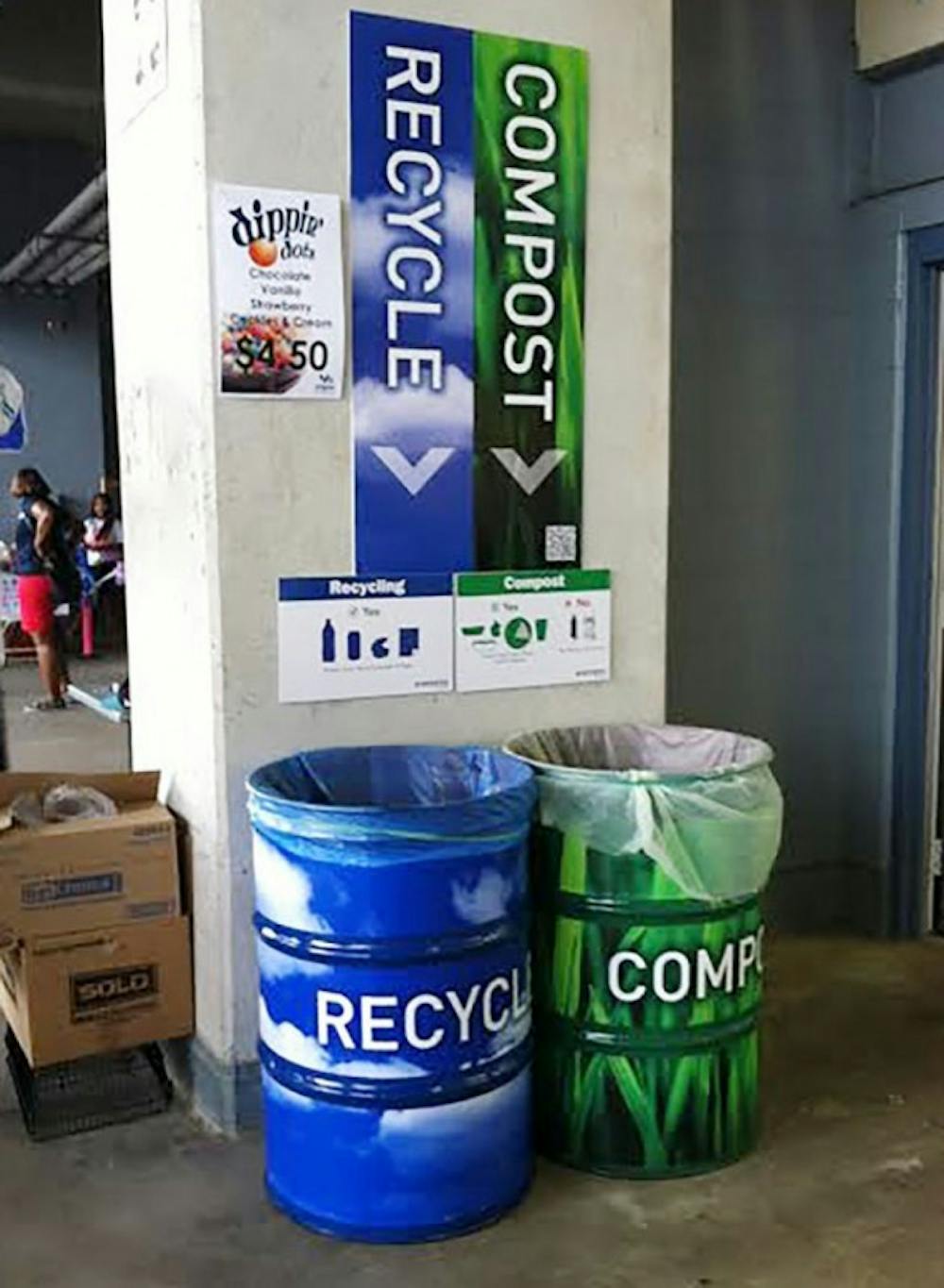There are no longer trashcans in UB Stadium.
Only green compost cans and blue recycle cans line the stands, encouraging football fans to sort their trash in an effort to reduce waste and global warming.
This trashcan-less stadium – except for in the restrooms – is part of the Zero Waste program at UB, an institution-wide initiative that aims to help the school achieve climate neutrality by 2030.
UB’s Environmental Network, a student-run club, is a major advocate of the eco-friendly practices being put in place on campus. The club aims to increase environmental awareness and advocate for changes in UB’s environmental policies.
Members promoted the Zero Waste program at the football game on Aug. 30 by standing at the recycling and composting receptacles to guide the crowd to which waste can be composted and which waste can be recycled.
These UB students are dedicated to pressuring officials to make meaningful changes both on campus and in international business sustainability practices.
Erin Moscati, sustainability education manager at the Office of Sustainability said an “extremely small quantity” of waste produced in the Stadium is not recyclable or compostable.
“Inevitably, people will get confused if there’s not a trash can,” said Holly Kistner, a senior environmental geosciences major. Kistner was an intern last year for the Office of Sustainability.
If the Zero Waste program at UB Stadium is successful, UB will expand it to outdoor special events such as Fall Fest and Spring Fest, according to Moscati. She said the program could also expand to the academic buildings and become a daily part of student life.
“There is no ‘away.’ You never throw something away. It always goes somewhere,” she said. “Everyone is personally responsible for their waste.”
Justin Imiola, a senior economics and environmental geosciences major and president of Environmental Network, wants to make an impact on and off campus.
He hopes students will be more involved with the club this year.
“The EN has waned off in years past, and we’re trying to rebuild,” he said.
Imiola said 70 students showed interest in the club at orientation, but he would be happy with 35 committed students.
Many initiatives and activities take place outside the meetings and Imiola encourages students to participate in their eco-friendly projects even if they cannot attend the meetings.
One of these events is Recyclemania.
The eight-week competition, coordinated by the Office of Sustainability, is between colleges across the United States and Canada to increase participation in campus recycling programs. Last year, UB recycled 26.454 percent of its total waste and was ranked 149 out of 461 schools.
“We’ve never won, but we participate,” Kistner said. “Just to get people aware of it, that’s winning itself.”
This year, the club will also attend what Kistner calls the “Civil Rights March of our generation.”
The People’s Climate March in New York City is expected to be the largest climate march in history and will be “a movement of movements” with more than 1,000 participating organizations from across the United States and Canada, according to the People’s Climate March website. The march aims to pressure world leaders to negotiate solutions to climate change.
It will take place on Sept. 21, two days before the 2014 UN Climate Summit. The club plans to organize a bus for UB students interested in attending the march.
For now, the group’s volunteers wearing green T-shirts will be at UB Stadium instructing the football fans on how to properly dispose of their waste. Interested students can find Environmental Network in Knox 104 on Tuesdays at 7 p.m.
email: features@ubspectrum.com





